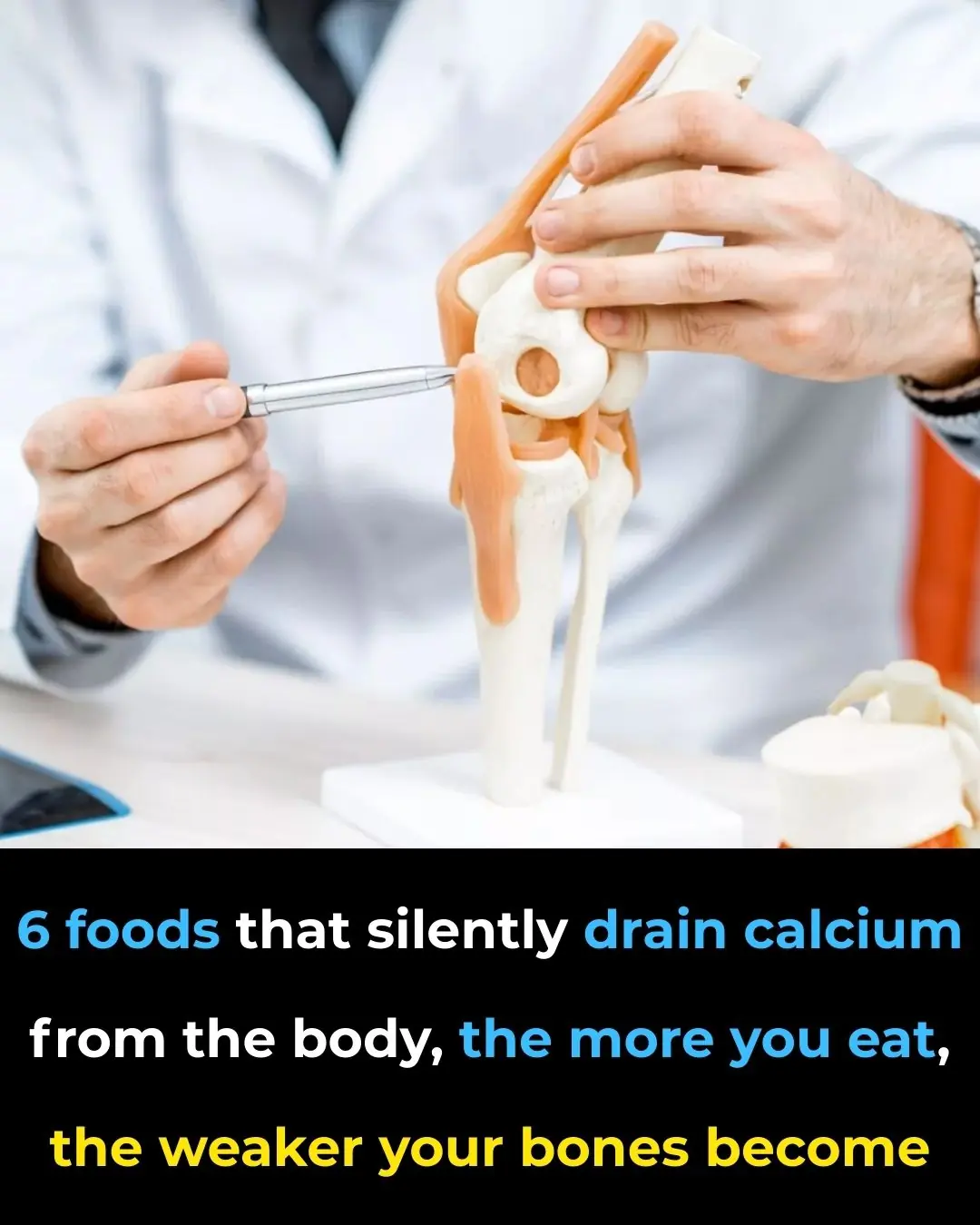
If You Eat Eggs Every Day

Eggs have been a staple in human diets for centuries—and for good reason. They’re packed with high-quality protein, essential vitamins, and vital minerals, making them one of the most complete and affordable superfoods available. Easy to prepare, versatile, and budget-friendly, eggs fit seamlessly into meals across cultures and cuisines.
But like all good things, moderation is key. So, let’s take a closer look at the health benefits and potential drawbacks of eating eggs daily.
🥚 Health Benefits of Eating Eggs
1. A Complete Source of High-Quality Protein
Each egg contains about 6–7 grams of protein, along with all nine essential amino acids. This makes eggs an excellent food for:
-
Muscle repair and recovery
-
Immune system support
-
Growth and tissue regeneration
For athletes, gym-goers, or those on high-protein diets, eggs are a compact and efficient way to meet daily protein needs.
2. Packed with Essential Vitamins & Minerals
Eggs are nature’s multivitamin, providing a wide range of nutrients in a small package:
-
Vitamin A – supports eye health and skin regeneration
-
Vitamin D – strengthens bones and boosts immunity
-
Vitamin E – acts as an antioxidant to combat cellular damage
-
Vitamin B12 & Folate – essential for red blood cell production and neurological function
-
Iron & Zinc – aid in energy metabolism and immune defense
They also contain selenium, phosphorus, and iodine—often overlooked but critical for thyroid and metabolic health.
3. Boosts Eye Health 👁️
Egg yolks contain lutein and zeaxanthin, antioxidants that accumulate in the retina. These compounds help:
-
Protect against age-related macular degeneration (AMD)
-
Reduce risk of cataracts
-
Improve night vision and visual clarity
4. Supports Brain Function and Mental Clarity
Eggs are among the richest dietary sources of choline, a nutrient vital for:
-
Memory and learning
-
Brain development in infants and children
-
Nervous system regulation
In fact, one egg provides about 25–30% of the recommended daily intake for choline, making it especially valuable for pregnant women and older adults.
5. Aids in Weight Management
Because they’re high in protein and low in calories, eggs help you feel fuller for longer. This satiety effect can:
-
Reduce snacking and late-night cravings
-
Support healthy calorie intake
-
Help with portion control and appetite regulation
A protein-rich breakfast with eggs may also lead to improved metabolic outcomes compared to carb-heavy meals like cereal or toast.
6. Supports Heart and Metabolic Health (In Moderation)
Recent studies suggest that moderate egg consumption may actually improve heart health for most people by:
-
Increasing HDL ("good") cholesterol
-
Providing antioxidants and anti-inflammatory nutrients
-
Helping maintain healthy blood sugar levels
⚠️ Potential Risks of Overconsumption
1. Cholesterol Concerns
One egg contains about 186 mg of cholesterol—all in the yolk. While dietary cholesterol has less impact on blood levels than once thought, people with:
-
Heart disease
-
Type 2 diabetes
-
High LDL cholesterol
...should consult a healthcare provider to determine safe egg consumption levels.
2. Liver Function and Fat Digestion
People with liver conditions or gallbladder issues may find digesting large quantities of eggs—especially fried or fatty preparations—challenging. This could lead to:
-
Bloating
-
Nausea
-
Discomfort after eating
3. Egg Allergy (Especially in Children)
Egg allergies are among the most common food allergies in children. Symptoms can range from:
-
Skin rashes and itching
-
Digestive upset
-
Respiratory reactions like wheezing or nasal congestion
Most children outgrow egg allergies, but they can persist into adulthood in rare cases.
4. Risk of Salmonella Contamination
Consuming raw or undercooked eggs can pose a risk of Salmonella infection, which causes:
-
Vomiting
-
Diarrhea
-
Fever
To stay safe:
-
Cook eggs thoroughly (whites and yolks firm)
-
Use pasteurized eggs for recipes like homemade mayo, mousse, or raw cookie dough
🟩 The Bottom Line
One egg a day is generally safe—and even beneficial—for most healthy individuals when included as part of a varied, balanced diet. Whether scrambled, poached, boiled, or baked, eggs can be a nutritional powerhouse when prepared healthfully.
✅ Best for:
-
Muscle recovery & tissue health
-
Cognitive and eye function
-
Weight management and satiety
📝 Final Tips:
-
Cook thoroughly to avoid bacteria
-
Moderate intake if you have liver or cholesterol issues
-
Pair with whole grains, fruits, and vegetables to round out your meals
Eggs aren’t just a breakfast food—they’re a daily ally for health, as long as you enjoy them wisely.
News in the same category


Swollen Legs, Ankles, and Feet: Causes and Proven Remedies (Including a Parsley Tea Recipe)

Scientifically Proven Health Benefits of Papaya + Uses for the Seeds

How to Keep Your Ears Clean For Longer

6 Harmful Foods That Weaken Calcium Levels

Eating More Cruciferous Vegetables May Cut Colon Cancer Risk

Dogs Able to Sniff Out Parkinson’s Before Symptoms Appear

14 hidden causes of tingling feet (and what to do)

At last — how to detox the brain naturally

5 Blood Clot Facts Doctors Want You to Know

8 Foods That Help Lower Your Cholesterol

6 Harmful Foods That Weaken Calcium Levels

How to Use Castor Oil to Regrow Eyelashes and Eyebrows

Scientifically Proven Health Benefits of Avocado and Avocado Seeds

Experts Say They’ve Pinpointed the Cause of Autism—And It Could Lead to New Treatments

Scientists Say Cancer Can Now Be Detected Years in Advance with Simple Blood Test

Final straw that led to billionaire CEO's desperate escape from Japan inside 3ft box

10 Early Warning Signs Your Blood Sugar Is Way Too High

If Your Legs Cramp at Night You Need to Know This Immediately
News Post

Bill Gates reveals the only three jobs he believes will survive the AI revolution

Man had his lifetime first class ticket removed mid-flight after he cost the airline $21,000,000

Unlock Your Body's Healing Power with Water Fasting

Swollen Legs, Ankles, and Feet: Causes and Proven Remedies (Including a Parsley Tea Recipe)

Scientifically Proven Health Benefits of Papaya + Uses for the Seeds

How to Keep Your Ears Clean For Longer

The Secret Ingredient for a Dust-Free Home for a Whole Week

The Super Vegetable That Grows Green and Is Packed with Vitamin C—10 Times More Than Oranges and Lemons!

Why Smart People Keep This Jar in the Bathroom: The Surprising Benefits You Need to Know

The Hidden Function of the Small Hole in Your Sink: Why It's Actually Essential

How to Restore Your Yellowed Pillow to Its Original White with One Simple Trick

The Hidden Function of the "Small Box" in Your Washing Machine: Why You Should Never Skip It

How to Clean Plastic Baskets with One Simple Trick

The Best Way to Keep Shrimp Fresh and Sweet for a Whole Week

I Hesitated to Date a Single Dad—But What I Discovered After He Moved In Shocked Me

6 Harmful Foods That Weaken Calcium Levels

Eating More Cruciferous Vegetables May Cut Colon Cancer Risk

Dogs Able to Sniff Out Parkinson’s Before Symptoms Appear
